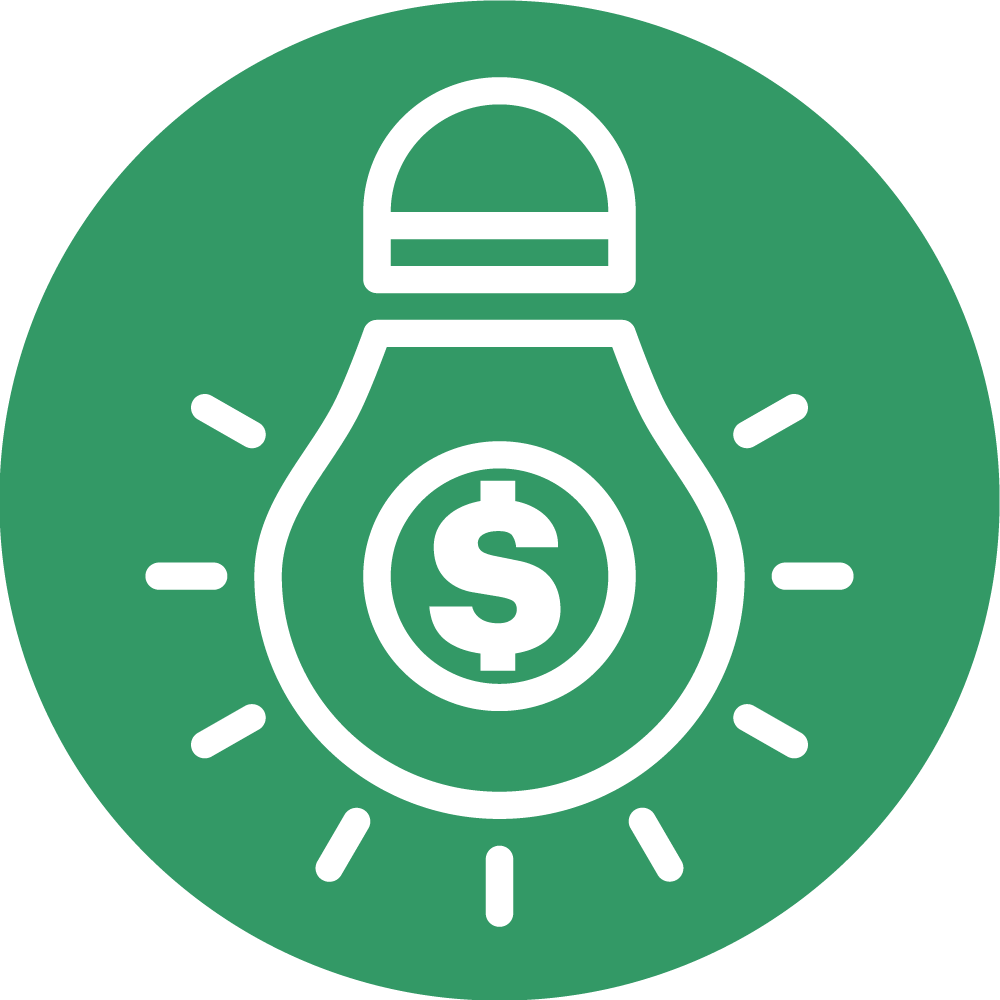Manchester’s mainstay DJ and new music obsessive Shell Zenner on how she makes, saves and tracks money from a diverse range of music gigs
Shell Zenner somehow blends together a career involving multiple radio shows, club nights, DJing and a huge variety of other activities, all of which revolve around an almost surreal level of dedication to new talent.
Having gone full-time in music a year or so back, she is in some ways the consummate modern media worker, pulling together a variety of incomes and a strong sense of her personal brand to sustain herself in the music and broadcast industries.
Unsurprisingly, keeping on top of her various work and projects requires a remarkable level of personal and financial organisation, so we couldn’t think of many people better placed to discuss the challenges, tips and tricks of money in the music and broadcast industries. Fortunately, Shell was generous enough to share her insights…
How would you describe your current role, given the many different strands to your work?
“I would describe myself as a ‘radio-presenter-producer-curator-music-journalist – that does digital’. Does that make sense!?”
Er, yes… How many different sources of income do you have?
“Well, I don’t do any free work unless it’s for charity, so everything else I do is paid. There are a couple of things which will pay me PAYE [Pay As You Earn – i.e. taxed at source], which is BBC work, whether freelance or staff, so I work a day and a half a week for the BBC. I do two days for my XS show, which is freelance, and my Amazing Radio show is freelance, then I do various other little projects…
“The more skills you’ve got, the stronger a position you’re going to be in”

“So things like DJing, which is obviously not happening at the moment, but I normally co-curate nights with [Manchester venue] Band On The Wall, I do lecturing, I do hosting, I’ll get paid for filmed interviews for brands, build playlists, write articles, host online gigs – and I also do voice-overs. And I’ve forgotten about artist development! I’ve been doing quite a lot of that over the last 12 months, which has been really great, being able to mentor new artists. I’ve also done things like assessing funding applications for PRS and Help Musicians. All of that ‘top-up’ work [outside of radio], is all freelance.”
Looking for funding? Check out our guide: UK arts funding and development opportunities
There are so many poor unpaid ‘opportunities’ in the creative industries. How did you go about finding such a variety of paid work?
“I find it mostly comes to me now. I think that’s about networking and about being a sure thing and also having a big palette of skills. So, if someone wants a voice over, I can copy-write, I can voice it, I can edit it. It’s having a home studio and the equipment you need, it’s having contacts at facilities and a rapport with people.
“[In terms of networking], it’s just about talking to people because you’d be surprised – that conversation might not lead to something right now, but it could in six months time. If a project comes up, they may think of you. It’s also about wanting to keep learning new skills and pushing your knowledge because technology is changing all the time. Now I’m able to video edit and film myself and things like that make a big difference. Again, the more skills you’ve got, the stronger a position you’re going to be in.”
Want to make sure you never miss a post?
Sign up to the Creative Money newsletter!
Let me read it first >
Do you think we have an issue with financial literacy in the creative world?
“Yeah, you’re absolutely right. I do a bit of lecturing and often wind up talking about how I budget or how I organise myself and I think it is illuminating for people. [It’s surprising], even freelancers at the BBC, where they get tax deducted at source, don’t know how to handle freelance earnings and DJ money and stuff like that. And people don’t know how much to charge for stuff, so it’s about having the balls to stand up and say how much you need to be paid. I’ve had to point out to people like, ‘That’s going to be paying me below minimum wage, once I take the tax money off.’ Once they think about it, they will up the money then, but you have to have the strength of character to do that as well, because there’s a risk you could lose the work.”

A major issue for many in the creative industries is the ups and downs of cash flow. How do you deal with that situation?
“There’s a couple of things that I think are really important. One is always having some savings. I grew up in another industry [engineering], and I never really wanted to depend on anyone else, so I always made sure I had a bit of money to cover one or two months, should anything go wrong. I worked this career up over 10 years – I didn’t take the plunge to go fully radio/music until last year. I’ve always been quite risk-averse but that has stood me in good stead because I built it up over such a long time and wore so many hats.
“The other thing is that I’ve been really clear about keeping spreadsheets for earnings, expenses and mileage and understanding what you can and can’t claim as a business expense. I got myself an accountant and you think, ‘Oh I don’t want to pay that kind of money’, but an accountant is a tax deductible expense and they don’t always cost the earth. Having someone there that you can run stuff by gives me the sense of security that I’ve done everything correctly and am not going to find myself in trouble and needing to pay a big sum of money down the line.”
Struggling with your cash flow as a freelancer? Take a look at our guide: ‘How to manage your money on a variable income’
How do you handle things like invoicing and tax savings?
“Every freelance earning you make, regardless of whether it’s paid in cash, you still have to invoice, so it’s having systems in place for invoicing and saving invoices. Then, for me, it’s making sure that whenever you get a payment you are – right at source, as soon as it comes in – taking 30% off for tax and national insurance and putting it in a separate savings account. I have two linked [savings] accounts at this point, one for the last financial year and one for the current one. I got my tax return back today and it says I’m getting a rebate! So not only do I not need to pay it, I get a rebate. Now I’ve got some extra money and I can think, ‘What can I invest that in?’ Or give myself more of a buffer.
“You hear people say, ‘Right, I need to go and sell my car so I can pay my tax bill.’ That’s insane!”

“I’m not the messiah of tax but I’ve seen friends fall foul of that who have worked in the creative industries, so I think it’s worth being super organised and giving yourself that buffer. If I have that money there, I also know that if something goes drastically wrong then I have that flexibility. You don’t want to be living hand-to-mouth if you lose one of your roles. Some people rely on one particular organisation for a lot of their work, that’s pretty normal for most people, but then if you do lose your role you’re in quite a catastrophic situation.”
Do you use any fancy financial software to help you keep track?
“There are people that track things in more modern ways, but a spreadsheet is fine for me, so I keep an eye on my income, my receipts, my mileage and just have it all listed in one document. If you can do that and update it week-by-week, it just makes your life so much easier. Then when you get to the end of the financial year, you can just have a quick check-through and send it to the accountant for the final number crunching. The amount of people you see who are at the end of December and January, trying to do their tax returns and panicking… I’ve seen that a lot. That thing like, ‘Right, I need to go and sell my car so I can pay my tax bill.’ I’m just like, ‘What!? That’s insane!’”

What are the financial issues or mistakes you think people should be wary of as they try to keep their head above water in the broadcast or music industry?
“I think if you are in a situation where you are pitching for something and you’ll need to hire a lot of equipment or pay out for locations then you’ll need to be really watertight on your contract. If you lose the job and you’re having to pay, then having policies in place for that kind of stuff is really important. Insurance, too. For instance, I have public liability insurance and I try to cover myself to make sure if I say anything on air [that could lead to a lawsuit]. You just have to protect yourself really well and prepare for every eventuality. I’ve done a lot on this, my career before this was engineering so I was into health and safety, risk assessments and stuff like that!
“The worst thing you can do, business-wise, is promise things and then not deliver”

“It’s also about always having a contingency [plan] so that should anything go wrong, you’re not out of pocket, because ultimately you need to be making profit. Even if it’s just a small profit. You may be gaining from a project in a different way, whether it’s experiences or contacts, so you may be willing to do something at a stripped-back rate to gain that network and that experience, but it’s still important to make sure you’re not going to end up out of pocket.”
Is there anything about money in the creative industries that you would like to change for the better?
“I would definitely like the BBC to change their freelance policy. I was angry about this before, but the lockdown situation has really brought to light the major issues with it, which is that if you work as a freelancer at the BBC, you get taxed at source and that means you can’t claim the mileage or any of the expenses [nor do you have the perks of full-time staff]. So should you need to travel two hours to get to a job, you can’t claim that mileage, you can’t claim any equipment you might need to do that job.
In need of financial support amid the Covid-19 pandemic? We’ve rounded-up some options here: Coronavirus support: resources for the creative industries
“[The BBC have stepped-up to offer furlough payments for freelancers now] but there were people who lost all their work because the BBC has changed schedules etc., which is fine, but if you go to HMRC and over 50% of your earnings are PAYE, then you are not eligible to claim on the Self-Employment Income Support Scheme. So that’s meant there were a lot of freelancers who couldn’t be furloughed because they weren’t technically ’employed’ by a company, they couldn’t claim for the self-employment benefit and all they had left is Universal Credit, which is very little. If you are paid as a freelance, you shouldn’t be taxed at source, you should be figuring out your tax through a tax return and you should be able to claim your expenses. I question why freelancing at the BBC has to be taxed at source, it just doesn’t seem consistent to me.”
And it’s not just BBC freelancers, it’s those setup as Ltd companies, new starters and other PAYE freelancers. Millions of people…
“I’ve been trying to support [the #ExcludedUK campaign] on Twitter and stuff. These people have really fallen through the cracks and it’s just pretty insane really. It just blows my mind.”
What would you say to someone trying to figure out how to sustain themselves within the industry?
“Maybe just that it’s good to give yourself a financial buffer. It means you don’t have to flog yourself just to survive at times. The problem is in the creative industries is that self care is something that’s often overlooked. You feel like you need to be ‘on it’ 24/7 and sometimes, for whatever reason – you’re not very well, or you’ve got family issues – giving yourself a little bit of a buffer can enable you to take some time out and give yourself a breather. You can push yourself too far with the pressure of it, so having some savings there really helps.
“Also, it’s about not over-stretching yourself with work and trying to be realistic with what you can accommodate and do. The worst thing you can do, business-wise, is promise things and then not deliver.”

The summary:
- Spread your risk. Zenner worked a day job for nearly a decade before taking the plunge full-time in music. She also now has a huge variety of income strands.
- You need savings. Make the effort to syphon off tax money as soon as it lands in your account and build a savings buffer to get you through tougher times.
- Network – and deliver! We don’t mean lunch at The Ivy. Just talk to people. You never know what might happen down the line. And, crucially, make sure you follow through on any promises you make.
- Keep building your skillset. Zenner has consciously expanded her skillset to include writing, recording, editing and video, alongside promoting and industry knowledge. All of these can provide a source of income.
How I Make It Work is a series of interviews with a variety of creative professionals, where we discuss personal experiences and lessons learned about money in the creative industries.
How can we help you?
What issues are you facing? What questions do you have about managing your money in the creative industries? What would be most helpful to you?
We don’t have all the answers, but maybe we can find someone that does.
